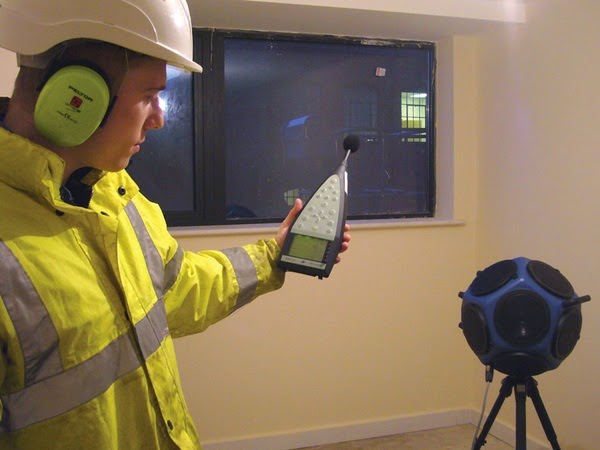Your house is comfortable to the extent that it can be quiet. The third noise should not distract or disrupt your activities. According to Omar Saad, a specialist in architectural acoustics, at the noise problem is mainly due to three factors:
1. The sound travels through the air, is the most frequently refers to the annoying sounds of any department or street neighbor (music, the cry of a child, vehicular traffic). Saad ideally indicates that in this case is to increase the density of windows and walls to generate greater isolation.
2. The sounds that travel through the structure: it is not unusual to hear whispers, footsteps on the floor above, drag your furniture or in extreme cases snoring or neighbor’s alarm clock.
3. Noise in the indoor environment: the lack of sound insulation in the house is another typical problem. Each family member has special activities and the level of noise generated or hear could affect coexistence.

Interior noise generally come from areas of greater height or with hard materials such as marble, plaster board or glass. The sound bounces hits these surfaces almost entirely, causing the sound to remain in space for a long time, this is known as reverberation time.
home remedies to silence
1. The curtains help reduce outside noise. The thicker the better the protection. The fabrics ‘double’ are ideal for a good sound effect. A good choice is the upholstery fabrics: velvet, corduroy and jacquard.
2. Strengthens the walls and slabs with some weight materials such as drywall and seal all holes there. While they may lose inches of space, a second wall avoid listening to the neighbor next door.
3. Find a balance in the walls between the hard and porous materials (pictures and fabric based furniture, curtains thick materials).
4. Avoid sliding windows. The projection or flaps allow use rubber seals which can absorb the difference between the window and the frame.
5. There are special glues for wood floors that prevent heeling or noise when someone pulls a chair.
6. If the noises come from the same building, it is best to install plasterboard ceiling mode or take with them the walls. These consist of a metal structure and gypsum board, is placed between a layer of glass fiber which absorbs vibrations.
7. If the need is even greater insulation, you can place between panels acoustic barriers or rubber asphalt are very effective.
8. The brand offers Plaka Comex Comex, an acoustic system that absorbs up to 70% of the noise. Although the cost depends on the specification of the work or project, ranging between $ 500 and $ 800 pesos per square meter.
9. When your rooms are divided by walls of drywall, the ideal is to isolate the noise with fiberglass. If they are divided by partition walls normal, you can isolate the noise with tapestry cloth or sponge consistency, or alternatively, you can use the carpet to absorb sound.
10. 10. Use thicker glass windows, the 6mm are excellent. Its cost ranges between $ 200 and $ 250 pesos per square meter. You can also use the acoustic glass. They are double glazing 6 mm each and between them form an air bed that allows effective isolation.
11. Arturo Vargas, director of Acoustic Solutions, Sound Barrier recommends applying a neoprene material that is put both on floors and walls and can be covered with cast or chipboard (MDF). Seal the cracks and thus reduces noise but almost entirely low frequencies as the sound of an airplane will continue listening.
12. As for noise caused by pipes, showers or air conditioning, there are options. If you are exposed to the outside, they are made of polyurethane finish Absortex type materials. If they are hidden, the solution is treated as walls with the tips above.
If you buy home or depa reviews these 5 points
1. Thickness of walls: in accordance with the City building code, the minimum thickness of a wall is 12 inches. The ideal is 16 cm, or failing that is plastered on both sides, so that the plaster seal all cracks.
February. Slab thickness: the recommended is 16 cm, although the ideal is 20 cm. Remember that the slab also carries coating or carpet and this will raise the thickness.
Three. Notice that the windows are hinged or projection, then you can put seals better. Remember that if you slide and there’s nothing to do: you will hear outside noise.
April. It is ideal to have false ceiling drywall in the room, as it will help isolate noise superior department.
May. Verify that the rooms not noisy spaces abutting the adjoining apartment, as the TV room or kitchen.

0 comments:
Post a Comment